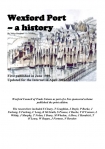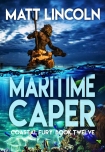Disembarkation- by Nicky Rossiter (motivational books to read txt) 📗

- Author: Nicky Rossiter
Book online «Disembarkation- by Nicky Rossiter (motivational books to read txt) 📗». Author Nicky Rossiter
In the same period, mantles and coal were common cargoes from Wexford to La Rochelle in France. In 1587, 15 of the 24 Irish vessels carrying coal from Milford in Wales were Wexford registered. So common is foreign trade believed to have been, that Stainhurst, a Tudor chronicler, indicated that the natives of Wexford expressed themselves in a wide range of languages common to the different races frequenting the port.
Shipbuilding was also flourishing through this medieval period. In 1584 the Lord Deputy Perrot, named Wexford as one of 4 ports for the building of ships. It is also stated that Wexford was exporting shipbuilding materials and completed ships to Scotland possibly for use in running arms to Hugh O'Neill.
Over the next two centuries Wexford port increased its trade and the ships from the town were the principal vessels carrying Welsh coal into Ireland. In fact, so great had the shipping fleet become that in 1598 it was stated that the combined ports of Wexford and Waterford operated more ships than all of the other ports of Ireland.
In 1610 the king granted prisage on all wines imported into the town of Wexford or any creek to that harbour to Henry Pierse. The quays mentioned in the town on May 24th of that year were: The Quay of the Pale (Paul Quay) owned by Roger Canton.
Richard Hay's Quay owned by David Hay, an alderman.
Nic, Frenche's Quay also owned by David Hay.
Turnor's Quay owned by Nicholas Turnor.
Morne's Quay owned by Richard and John Morne. (probably Moran) Bollane's Quay owned by Jenkine Turnor (Turner)
Staples Quay owned by Barnabie Rowcester (Rossiter).
Hassane's Quay owned by Hassane Lienge (Ling).
Mr. Mytton was the sole customs officer for the port and as he could not oversee all of the quays much revenue was lost to the crown. This problem became evident to the Commissioners but it was many years later before they ordered that only two quays were to be used for trade. The order was made in 1651 and Frenche's Quay and Common Quay were the places designated.
The principal exports in 1611 were timber, pipestaves, hides, tallow, wood-fells and herrings. Wines, iron and salt were the main imports and Mr. Robert Cogan writing to Lord Carew valued both the goods outward and goods inward at about £4,000 each. For the year 1632 the customs dues levied at Wexford amounted to £510-17-7 ¼
With the Confederation of Kilkenny, Wexford's maritime importance became very much a military one. In the 1640's Wexford was the home base of the Confederate Navy. Robert Cole refers to the town in a report on March 15th 1643 thus: -
"It is the port into which all their (the rebels) ammunition and assistance from foreign ports comes. "
This probably refers to the landing of Henry Roe O'Neill and Col. Richard Ferrell from Flanders.
One of the greatest of the war ships operating out of Wexford was 'The Patrick'. She carried a crew of 100
and had 11 pieces of ordinance. On June 29th the Mayor of Wexford, Nicholas Hay, reported to the Supreme Council that a Wexford frigate had captured the Dublin post bound for England and after reading the letters he forwarded them.
Among the vessels based at Wexford at this time were:
'St. Francis', captained by Nicholas Holt.
'Mary of Antrim', captained by William O'Doran.
'Mary of the Isles', captained by Handemarke.
'St. Michael', captained by Booth.
'Mary and John', captained by John Rosseter.
'The Cock', captained by Peter Deferterne.
'St. Peter', captained by Joseph Constant.
'The Cupido' captained by Manuel Buckson.
'St. Corneluis', captained by Francis Oliver.
There were also ships captained by Messrs. Bradshaw, D'Arcy and Turner.
Captain John Doran was the principal naval officer in Wexford. The sailors on these frigates were classed as pirates and were very harshly dealt with on capture. Many of them were tied back to back and thrown into the sea. Such treatment served to further enrage the 'pirates' and spurred them on to greater conquests.
Another incentive to plunder was the serious lack of provisions in Wexford town in 1649. In fact, during that year "corne was so scarce and dear in Wexford and Waterford that unless the frigates of these towns had not made many prizes the people would have starved. " In a letter from Michael Bolan, Mayor, dated April 30th 1649 it is related;
"Captain Doran of 'The Mary of the Isles' has sent in a Dutch prize with about 400 barrels of Rye . . . I assure you that there is such a scarcity and extreme dearth of corne here that if his lordship should dispose of it to the army it will leave this place unable to provide friggots, "
Such was the shipping trade in Wexford Port in the months leading up to the assault on the town by Oliver Cromwell. This attack and its aftermath are well documented in other publications. However, recent research appears to point to the vast amount of activity in the port as a major factor in that massacre. While Drogheda was an important military base, Wexford was the main naval base. It was principally for these reasons that both towns suffered as they did at Cromwell's hands. Also, the port had been, throughout the time of the Confederation, a natural staging point for incoming foreigners and Spanish spies. In a letter dated October 3rd 1649, Hugh Peters, a member of Cromwell’s army reported;
"We took the Fort here (at Rosslare) .... also the frigot with 14 guns in her, a new vessel. . . There be many other ships above at the towne, which if God give the towne will fall in. "
In a later letter, Peters reported on what they found at Wexford after the battle;
"We have neere 80 ships and 100 boats to fish in, of which there is a fine trade. "
The port was soon back in business following the attack. Licence was granted for the herring trade. An order was made in 1651 that all exports and imports from the town of Wexford





Comments (0)